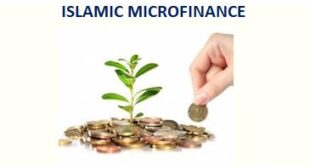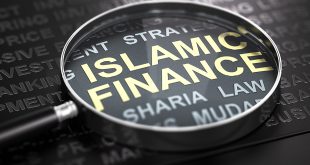Running parallel with the rapid growth in halal banking in recent times has been an equally swift increase in awareness on climate change and its impending consequences. Whilst the goals of ethical financing that is Shari’ah compliant and efforts to shift development and economic growth onto a more environmentally friendly path are compatible, sufficient collaboration is yet to take place. However, recent moves give cause for hope.
Environment to the fore
Much attention was on Abu Dhabi between 21 -23 of January as the National Exhibition Centre hosted the World Future Energy Summit (WFES). Labeled as a ‘carbon neutral event’ it witnessed a gathering that included many of the leading figures who are working to propel the environmental issue further to the fore.
One of the main attractions at the event was the unveiling of Masdar city development project model, a joint collaboration between the World Wide Fund for Nature (WWF) and the government of Abu Dhabi. The project ‘Masdar’, meaning ‘source’ in Arabic, is set to be the world’s most environmentally friendly city with zero-carbon, zero-waste and free of motorized transport. The $15 billion development is expected to reach full completion in 2012.
Whist ironic it is commendable that the city surrounded by oil fields is taking steps to make a real and positive contribution to developing an alternative future that is sustainable based on a realization of the finite nature of fossil fuels. The new city is expected to meet standards set out by the WWF under the ‘One Planet Living’ programme whose vision is of a world where people everywhere can lead happy, healthy lives within their fair share of the Earth’s resources. On the practical side, a key feature of the six kilometre – wide city will include Photovoltaic panels for electricity generation, cooling via concentrated solar power, water provision through solar-powered desalination plants and the irrigation of crops grown outside the city with treated waste water.
Green investments
Masdar is one of numerous clean energy projects pipelined in the UAE region like a nation-wide network of carbon capture storage projects to pump gases into oilfields, thus lowering emissions and increasing output. However, it is not clear at this stage as to what type of funding option will be utilized for these green ventures and if any role is planned on leveraging on Shari’ah compliant finance. One reason is that the response of the Shari’ah compliant finance sector to the challenges posed by the environment has been somewhat slow to date. However, some positive developments can be noted.
Last year the Malaysian Amanah Raya Investment Bank teamed up with the Asian Finance Bank (AFB) to launch the Islamic green fund in order to leverage the two growth areas. The $294 million green fund was set up to invest in environmentally friendly projects that are also compliant with Shari’ah laws like bio-fuel ventures. This move was followed-up with an announcement that AFB and Amanah Raya also plans to launch a second ‘Islamic Green Fund’ worth some $1 billion by June this year also to focus on developing environmentally friendly projects in Asia and the Middle East. Incinerator projects, waste re-cycle plants, and alternative energy ventures are likely to benefit.
It is expected that Shari’ah compliant funds will have a role to play in developing projects like the Masda city development in the long-term due to their lucrative potential as well as attractiveness to ethical investors, both Muslim and Non-Muslim. The Abu Dhabi project is expected to result in the world’s largest hydrogen power plant to supply 500MW of clean power as well as to develop the world’s first 100MW concentrated solar power project.
The fully functional city is expected to meet the One Planet Living programme’s ten guiding principles related to sustainability. These are zero carbon, zero waste, sustainable transport, sustainable materials, sustainable food, sustainable water, habitats and wildlife, culture and heritage, equity and fair trade, and, health and happiness.
Sounds far fetched? Perhaps, but the reality of global warming and climate change poses a very ominous danger to the whole of mankind and the possible scenarios are catastrophic.
An unfolding crisis
Consider the Fourth Global Environment Outlook (GEO-4) compiled and published by the United Nations Environment Programme (UNEP) which includes the contributions of 390 experts who have contributed studies, data and research. The conclusion reached in the report is an eye-opener. “Humanity is changing the earth’s climate so fast and devouring resources so voraciously that it is poised to bequeath a ravaged planet to future generations’
This most comprehensive publication cataloguing climate change since the Brundtland Report in 1987 comes in the wake of a year that has up to now been dominated by climate change. The latest in a series of disasters was the wild-fires in the US state of California. November 2007 witnessed the destruction of some 1,500 homes and burned down 674 square miles across five – counties from Ventura to Mexico and the property damage is estimated to have topped $1 billion in San Diego County alone.
One unique feature of these fires that distinguished them from other disasters such as hurricane Katrina, where the frontline victims were the poor, is that the rich have been disproportionately affected. The hardest hit areas this time around were up-market homes. All the more reason perhaps, for US policy-makers to take note of the latest UN report calling on them to ‘propel the environment to the core of decision-making’ in order to address an unfolding crisis. Failure to do so would undoubtedly jeopardize our future generations. The impact on the US, the world’s leading polluter and a climate treaty offender and its less guilty climate offenders would not be easily disentangled.
For example, Chile’s 16 million population adds little to the green-house gas effect but is currently paying the price. According to sources, the country’s glaciers are vanishing whilst mudslides are becoming commonplace and spring-time snow is replaced by tepid rains. Mc Clatch reports that last May, an entire lake in southern Chile disappeared almost overnight as the Tempano Glacier that had acted as a dam melted and destabilized. These rapid transformations are spurring the country’s scientists to attempt to solve the puzzle of the impact over the coming years. With over half of the 120 glaciers under observation reported to be shrinking, with many vanishing at twice the rate of last year, scientists will have to work over – time to find the answers.
However, the Chilean researchers are not alone as they scramble for solutions. Neighbouring Argentina is facing drought on its side of the Andes due to falling rain levels whilst shrinking glaciers pose dangers to water supplies in Bolivia. They all agree that an era that they had become accustomed to in terms of their geo-physical environment is now over and the future is one of uncertainty.
The UNEP report claims that the global average temperatures rose by 0.74 degrees Celsius (1.33 Fahrenheit) over the past century and are forecast to rise by 1.8 to four C (3.24-7.2 F) by 2100, citing estimates by the 2007 Nobel Peace co-laureates, the Intergovernmental Panel on Climate Change.
The report also addresses issues arising out of a rise in the global population. The current total of six billion human earthlings is expected to swell to and peak at 9.7 billion by 2050.
Thus, meeting the nutritional and survival needs of the people will pose new challenges that need to be factored-in now. Land degradation and deforestation in Africa is estimated to have reduced production of food by 12 per cent since 1981. Fish consumption is said to have tripled over the past 40 years whilst the catches have stagnated or declined. The report also claims that over 30 per cent of amphibians, 23 per cent of mammals and 12 per cent of birds are currently under threat while many other vertebrates may not even have been assessed.
Not seeking to paint a "dark and gloomy scenario", the UNEP took note of some successes in the areas of combating ozone loss and chemical air pollution. However, it warned that in some cases, progress achieved in pollution reduction in the developed world was at the expense of the developing world where the industrial externalities and its impacts had been effectively exported or outsourced. .
The role of Islamic Finance
A Middle East Economic Digest (Meed) survey conducted in 2007 showed that the vast majority of Gulf Business leaders were in favour of clamping down on unsustainable environmental practices with new legislation. This first effort to ascertain business opinion on climate change in the GCC found that 99 per cent of respondents believed that businesses have an obligation to behave in a sustainable way whilst 84 per cent wanted to make it a legal requirement.
Even in the non-business community many people’s expectation on Islamic finance is of an alternative to the ‘dog-eat-dog’ style capitalism that has dominated the economic development of the world in recent decades. This approach surely bears the brunt of responsibility for the damage caused to the environment.
Islamic environment funds and Shari’ah compliant financing mechanisms need to seriously consider supporting projects that are involved in carbon trading, bio-fuel ventures, solar and hydrogen power plants, waste incineration and re-cycling projects. Such investments are the need of the coming hour and scholars should consider new and innovative approaches to addressing the issues.
Developments in technology also provide new and exciting opportunities for matching the dual goals of ensuring Shari’ah compatibility and environmental friendliness. For example, the Swedish motor manufacturer, Volvo, has developed a series of low CO2 emission vehicles as well as engines that run on a hybrid mix of the bio-fuel ethanol and diesel. These cars have the added option of a ‘Alcoguard’ that prevents the vehicle from starting if the driver is over the (alcohol) limit.
If Shari’ah finance simply becomes a parallel financing vehicle that allows investors to traverse along the same path as the rest of the industrialized world, with no consideration to the environmental impact, then its long-term creditability as a meaningful alternative will be seriously undermined amongst all communities. Whilst bankers will always pursue returns and profits on their investments, a tunnel vision of this variety will only hasten a deterioration in the quality of life of future generations. Moreover, it would not be in keeping with the sprit of the faith.
A case in point, rain is said to be a blessing for mankind that rejuvenates the earth to make it fertile. However, due to our unchecked pursuit of wealth and the consequent abuse of the natural resources that we have been blessed with, rain in many parts of the world has turned into ‘acid rain’ causing more damage than good. Thus, unchecked capitalism has turned a ‘blessing into a curse’
Source: Abu Dhabi News.Net, Himendra Mohan Kumar, Thomson Financial, M N Siddiqui, Meed
© Islamic Finance Today – Pioneer Publications (Pvt) Ltd
Post Disclaimer | Support Us
Support Us
The sailanmuslim.com web site entirely supported by individual donors and well wishers. If you regularly visit this site and wish to show your appreciation, or if you wish to see further development of sailanmuslim.com, please donate us
IMPORTANT : All content hosted on sailanmuslim.com is solely for non-commercial purposes and with the permission of original copyright holders. Any other use of the hosted content, such as for financial gain, requires express approval from the copyright owners.
 Sri lanka Muslims Web Portal Sri Lanka Muslims News Center
Sri lanka Muslims Web Portal Sri Lanka Muslims News Center
 Donate
Donate


